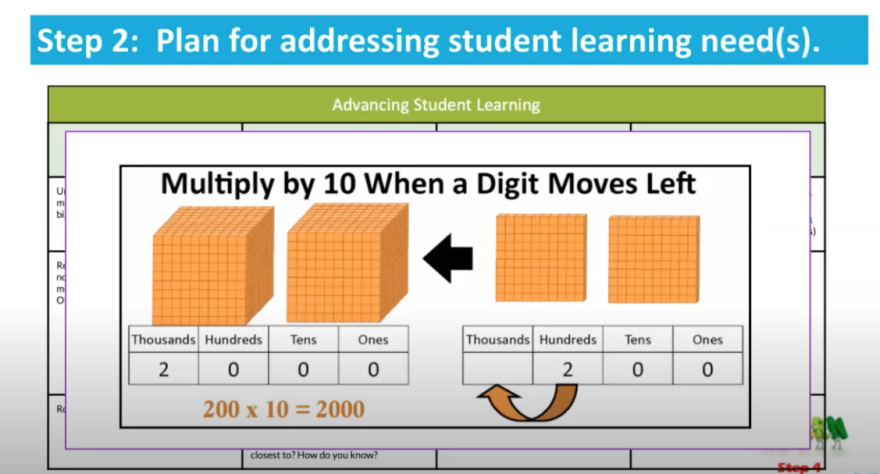North Carolina’s second-largest district has a huge amount of work ahead to get students ready to move ahead in math, reading and other core subjects. In September, Superintendent Earnest Winston said that “a true community all-in approach” is going to be needed.
Here’s more about what CMS has planned, how groups and individuals can help and what accountability looks like.
Starting young
When Thelma Byers-Bailey, vice chair of the CMS board, talks about academic strategies, the first thing she mentions is getting 4-year-olds into free public pre-kindergarten classes.
“If we don’t get those kids early enough and get them on track before they get started, when they get started we are forever backpedaling and trying to catch them up,” Byers-Bailey said. “I don’t want to have to catch them up. I want them to be on grade level at every point.”
Children in Mecklenburg County have access to Bright Beginnings, which is run by CMS, and Meck Pre-K, which is run by the county. Four-year-olds across the state can enroll in NC Pre-K. Even though the school year is underway, some seats remain unfilled. Earlier this month, CMS reported that about 9% of Bright Beginnings spots and 30% of the NC Pre-K spots remain open.
CMS recently reported that it’s working with community groups, medical providers, food banks and Latin American agencies to get the word out about seats that are still available.
Sizing up and closing gaps
For the kids who are already in school, educators are sizing up individual strengths and shortcomings and devising plans to develop missing skills. It’s not enough to know what percent of students in a district, school or classroom fell below grade level. Even if a large percentage are behind, that doesn’t mean they all are, or that they all need the same work to catch up.

So for CMS and other districts, it’s about helping classroom teachers figure out the gaps and how to address them. They’re also looking at all the turmoil and trauma that kids have been through in the past couple of years, and having counselors and psychologists ready to support them through that.
CMS has created short videos explaining plans to recover from what it calls “unfinished instruction” in these categories:
- K-2 literacy (seven minutes).
- 3-5 literacy (three minutes).
- K-5 math (six minutes).
- 6-8 literacy (four minutes).
- 6-8 math (five minutes).
- 9-12 literacy (two and a half minutes).
- 9-12 math (five minutes).
Tutors and after-school help
Volunteer tutors and outside groups providing support outside of school are part of the recovery plan. CMS has three groups that have been cleared to get volunteer tutors into school this year:
- The Augustine Literacy Project provides in-person and remote tutoring for students in the early elementary grades. It has about 200 tutors in schools now and hopes to expand to 300. For information about training classes in January and February, sign up for an information session.
- Heart Math is trying to recruit 1,400 tutors to work in person and remotely with students. Details and sign-ups here.
- The HELPS Education Fund provides tutors to help CMS students with reading fluency. Sign up for a training session here.
CMS is also spending $50 million in federal COVID-19 aid to contract with local and national groups that can provide extra academic help outside of school hours. That’s a long process that will play out over the next two or three years.
Families must play a role
CMS is also trying to support families in helping their children make up lost ground. For instance, Latino students and English-language learners saw especially big setbacks on some skills. Winston says he’s hiring more bilingual staff to help schools reach parents. He’s also hiring translators who can help with the other languages that CMS families speak.
Read Charlotte offers a Reading Checkup program, which is free to all Mecklenburg County families. It uses short online quizzes to size up reading skills for children in pre-kindergarten through third grade, then offers activities tailored to their needs. It’s available in English and Spanish.
Accountability for gains
The school board is working on a new approach to governing in which they pick a few very targeted goals and hold the superintendent accountable for meeting them. The board has agreed that progress for Black and Hispanic kids in reading and math have to be at the top of that list, although they’re still working on the time frame and the numbers.
The idea is that the board keeps checking progress but doesn’t micromanage.
“We’re not here to give the superintendent answers,” the board’s consultant, A.J. Crabill, told members in September. “We’re here to figure out if he has any. And if he does, then we need to know what role he needs us to play in supporting him. And if he doesn’t, frankly over time the board, that will become incredibly apparent and the board will have to make decisions accordingly.”
As for the board, accountability comes from the voters. The six district seats will be up for election next year, and the three at-large posts are up in 2023.
Winning back families
Another challenge for CMS — and most North Carolina districts — is rebuilding enrollment. Most districts saw a significant decline last school year, and this year's anticipated rebound has fallen short for most of them.
So far, the General Assembly hasn't penalized districts for falling short of projections, but ultimately lower enrollment will mean less money and fewer state-funded jobs.
The choice season for 2022-23 is about to gear up. CMS is holding open houses now, with applications for magnets opening next month. CMS will hold a virtual choice fair Dec. 4.




































































































